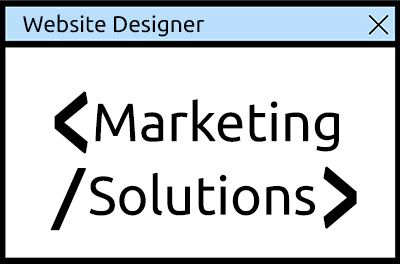No one should enter into any kind of e-commerce venture without first writing some sort of business plan. You may think it to be a complete waste of time and energy when all you want to do is dive in and get started. This is completely understandable as none of us really want to sit down and do costings and work out future timing schedules. After all it’s just so much more fun to jump in, get cracking and start watching the money roll in. Isn’t that so? No – not if you fail and without viable forward thinking fail you might!
Past studies have shown that any types of business that have followed a proper business plan are usually much more successful than those who have not. Why is that then? Simple – because they will have taken the time to thoroughly examine the possible risk factors, done their market research and drawn up realistic financial projections. It is difficult enough launching a new business when you have some idea of what to expect and a plan to work to but without some kind of formalized workable format to follow you seriously risk failure.
Above all though a business plan makes you focus on the everyday discipline of running a business. No matter how tiny your business is you must map out a serious work programme, with attainable deadlines, this will keep you totally focused on where you want to be in the future.
No bank or sponsor will even consider lending money to a new enterprise without first inspecting and approving a proper recognisable business plan, especially now in these days of financial hardship. Starting out without any real idea of where you plan your business to be in a year or six months time is like crossing the Atlantic in an open boat without enough provisions for the journey.
So you can begin to see that in a way starting any new e-commerce company is just like starting out on a long, unpredictable journey and writing your business plan is one of the first major steps you must take before setting out on a very personal and often demanding journey.
You need to ask yourself how long do you expect it to take for you get up and running? When do you expect to see the first green shoots of income and growth? How long will it take before you start to make a profit? What challenges do you envisage on the way? What factors might affect your sales? How will you deal with future expansion? How will you support yourself if things get difficult? What do you need to earn to be safe and comfortable?
All the questions posed above need to be asked and answered honestly before you even consider setting up your own e-commerce venture. Writing a business plan also helps you to understand your finances better, as you should have forecasted your sales and costs. You’ll begin to understand what happens if you don’t sell enough or indeed if you sell more than you anticipated.
Even if your online business is providing a service as opposed to a tangible product, a business plan will arm you with sufficient information to help you determine how many customers you need to provide this service to and what happens if demand exceeds your ability to provide the service. For instance if you are a webdesigner, although lots of clients may seem a blessing, too many can stretch you beyond you capabilities so that you require outside help. This poses a new problem – have you factored in the cost of outsourcing or hiring additional help?
There is no doubt at all that writing a business plan is a good discipline as it helps you to focus your efforts in the right areas – you’ll prioritise what you should be focusing on in order to run a successful and potentially expanding business. So how do you write a business plan? The basic format of a business plan includes:
An Overview of Your Business
This includes its products and services and explains what is your business is about, what you will sell and to whom you will sell on the web. You need a clear idea of what you plan to do and how you plan to do it, clarifying when you propose to implement each stage of your plan and indeed where you plan to do it.
Your Marketing and Sales Strategy
Ask yourself whether you have a clear idea who your customers are and what their needs are and then get it formalised. Why will they buy from your site? How are you going to attract them? What are your prices? Before you answer these important questions you will need to research your market thoroughly, which means first understanding how your competitors operate. Analyse their online strengths and weaknesses and work out, in detail and how you can do it better?
Your Operations
This part of your business plan needs to include your location, access, facilities, IT systems, supplier facilities, delivery charges and more.
Management and Personnel
Although you may seem small right now allow for expansion and possible personnel or outsourcing requirements. Take into account your own talents, management skills and credentials and consider if they are enough to get by with or whether you need to employ outside help if your company grows. You may need to outsource some of the SEO marketing or even IT updating.
Financial Forecasts
Those all important forecasts and projections. It is absolutely essential that your projections are realistic and plausible – many an aspiring entrepreneur has been turned down in the ‘Dragon’s Den’ simply because they got the maths so wrong in their presentation. Don’t panic if you are not that good with figures. Many banks will provide basic assistance, often enabling you to download a simple Cash Flow Forecast for free from their website.
The Executive Summary
You complete this last of all, but it’s the most important feature. Often lenders will only read the Executive Summary and the Forecast, since this tells them what they need to know in order to make a decision on whether or not to invest in you. Your Executive Summary is in a nutshell a summary of your whole business plan, so it should summarise your company mission, your products or services, your perceived customers, and justify your edge over your competitors and of last but not least your working figures.
Using Business Plan Templates
There are many Business Plan templates out there – some expensive and some free – you takes your pick. There is nothing to stop you using a template to help you with the format, but don’t spend huge amounts of money on purchasing a business plan software package. While they can undoubtedly help you in correctly structuring your business plan they won’t do the work for you and since every online business is different, there isn’t ever going to be a default package that fits every business.
Outsourcing Your Business Plan
This is another option if you can justify the money or you are really stuck and are glad to pay for someone else to write your business plan. However, writing a business plan yourself is not really a daunting task. You should be able to produce a perfectly reasonable document with time, care and a little extra guidance. You just need a Word package to word process your document and a spreadsheet package to calculate your forecasts.
You are always going to be the best person to write your business plan since it is only you that truly understands your e-commerce idea and dream. In addition during the course of putting together your business plan, you will learn a good deal more about yourself and your idea. By the time your plan is complete, you will undoubtedly have mastered valuable and practical skills that will service you well in operating your new online business.
Finally, to sum up, be aware that the most satisfying part of writing a business plan is that as you see events unfold, as you forecast, you will develop a new found confidence in yourself since your original dreams and ideas are now beginning to burgeoning and successful business. You got it down on paper first and now you are starting to make it happen!



